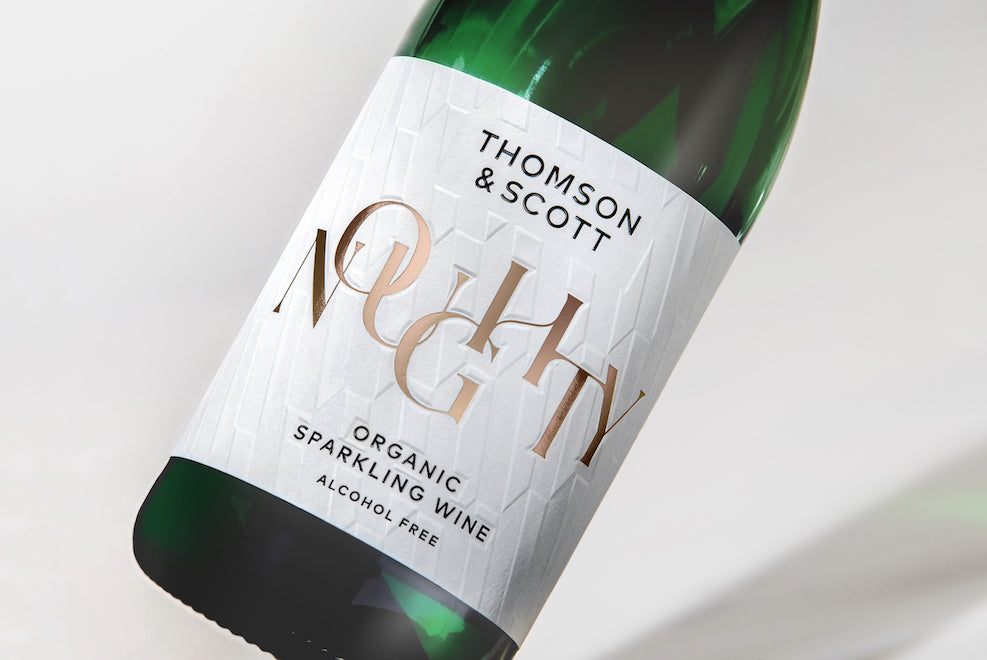Healthy Alternatives to Alcohol

With this in mind it is fascinating to explore delicious alternative drinks to enjoy instead of consuming alcohol as well as a range of activities to help unwind without the need to use alcohol to relax... and ultimately avoid the dreaded hangover.

So, what are the dangers of drinking too much alcohol?
Alcohol can affect the mind and body in many ways - in some ways positively, but in many ways negatively over time if consumed too much.
Over the festive period, many found it a testing time - wanting to be at the centre of the party but not wanting to drink to excess and regret it the next day.
Everyone knows that alcohol has traditionally been at the heart of everyone's idea of a good time, but these attitudes are changing fast.
The population wants to eat healthier foods, cutting meat products not only for their own health but also for the environment and animal welfare. This changing lifestyle is also moving into the drinks space. People want cleaner drinks, less sugar, less alcohol and more provenance when it comes to knowing what's in their glass.
Short-term effects on your health from too much alcohol consumption can include poor judgment in day to day tasks and decision-making, risk of overeating, thirst for more alcohol. And of course, the following day is all about dealing with the inevitable hangover, which can include nausea, heartburn, and fatigue, which in turn can often cause us to overeat, and not exercise enough.
Long-term potential risks can be more serious including heart disease, addiction and poor immunity.
So what are the healthy and enjoyable alternative drinks to alcohol?
What people are looking for are alternatives to their traditional alcoholic drinks that keep them engaged, taste good and feel like they are holding something that doesn't put them out of place in a bar or party environment.
Here are some ideas if you recognise yourself as someone who is sometimes caught in a social situation where you want to know what to drink instead of alcohol but you also don't want to be stuck with a soft drink in your hand with friends and colleagues asking "what's wrong?" or "are you driving tonight?"
1. Kombucha
This fermented and naturally lightly sparkling drink is made from black or green tea and a sprinkling of bacteria. It has forged a growing cult status amongst consumers looking for something that tastes 'grown-up' but that is also healthy. Many producers and advocates of Kombucha boast its probiotic and antioxidant properties. Because it's not sugar-based, it's become a big hit with younger drinkers and so its popularity has soared, particularly in London and other major cities where progressive bars and restaurants have recognised its 'cool' factor.

2. Alcohol-Free Sparkling Wine
For some time now the beer industry and spirits sector has looked seriously at alcohol-free alternatives to their best-selling products. Alcohol-free beers now are arguably indistinguishable from their alcoholic cousins and there is an exploding market full of herbal tonics and botanical blends as the perfect substitute for gin and other spirits.
But the wine industry has been slow to cotton on and until now the offerings have been cheap, poorly made with sub-quality design, meaning many consumers haven't considered non-alcoholic wine as an alternative to the real thing.
However, British wine brand Thomson & Scott has now launched Noughty, an organic, vegan and non-alcoholic sparkling wine that is low sugar and made from organically grown grapes in southern Spain. This crisp white wine is produced in the traditional way but is then carefully dealcoholised to retain its wine flavour and delicious drinking experience.
The beautifully designed bottle makes it the perfect alcohol-free wine choice for any drinks occasion and something you'd be happy to have displayed on the dining table or bar top.
3. Sparkling Juices
Sparkling juices are made using the same fermentation process as sparkling wine so make a great alternative to Prosecco or champagne because they have the same bubbles.
Shrubs (drinking vinegars) might sound odd but they can be the perfect non-alcoholic option for wine drinkers. They are made of fruit, herbs and apple cider vinegar and so the acidity and the variety of flavours make them a natural swap for wine.

4. Booze-free beer
The beer industry has recognised the leap in sales of its alcohol-free (0.5% ABV) and low alcohol beers over the last few years. Big brands have encouraged their consumers to opt for 'lite' versions of many of their favourites to help curb 'beer bellies' and reduce regular alcohol consumption.
Over the last couple of years however, more craft beer producers have recognised a growing market for premium alcohol-free beers sought out by younger drinkers who want brands that are engaging and hip but also responsible and with an eye on purity.
Brewdog and Big Drop are just two brands that have benefitted from the upsurge in alcohol-free beer purchasing in the UK instead of alcoholic beer.

5. Mocktails
According to Escoffier, a mocktail can best be described as a cocktail without the liquor incorporating juices or sodas, infused waters and various other non-alcoholic ingredients to provide a range of flavours.
Non-alcoholic cocktails are usually made fresh at a restaurant’s bar as opposed to a pre-bottled concoction, canned mixer or other drink that is ready as soon as it’s poured from the bar.
Modern mocktails tend to have a sense of sophistication, on an equal footing with their alcoholic counterparts. They use a variety of ingredients to cover a spectrum of flavours and colours, adding garnish to deliver a fantastic experience without the alcohol.
Thomson & Scott Noughty alcohol-free sparkling wine has now become part of this growing trend as mixologists look to add alcohol-free fizz to cocktails such as the French 75, The Pornstar Martini and the classic Champagne cocktail.
Some of the most well-known mocktails of course are named after famous faces such as the Shirley Temple (Ginger ale, lemon-lime soda, lemonade or other non-alcoholic base mixed with grenadine syrup and frequently garnished with a maraschino cherry), Roy Rogers (A cola base, similarly mixed with grenadine syrup and garnished with a maraschino cherry) and Arnold Palmer (A mix of iced tea and lemonade).

6. Alcohol-Free Gin
While sales of gin are booming, the makers recognise that alcohol consumption amongst gin drinkers has reached an all-time low, with consumers increasingly committing to abstinence as clean eating becomes more important than ever.
Alcohol-free "gin" is made using brewed juniper distillate, as well as steam distilled botanicals such as coriander, cardamom, Persian dried lime, Sicilian lemon peel, and liquorice.
It can also be produced using a variety of botanicals such as rosmarinus officinalis, lippia citriodora, rosa and helichrysum italicum, each distilled individually and then blended.
Alternatives to Drinking Alcohol to Relax
One key reason for alcohol consumption is it's found in everyday social settings. In addition, many people turn to drinking as a form of relaxation or stress relief for the nervous system. Health experts are ever-more vocal about the negative impact this habit can have over time. Even if consumed in small doses, alcohol consumption on a daily basis can mount up to considerable levels over a week.
There are of course a broad range of alternatives to drinking for stress relief. One time-tested option is involvement in aerobic activity such as: walking, running or jogging, cycling, swimming, gardening and sports.
Equally, there are more dedicated options such as meditation, deep breathing exercises and body scanning, which involves progressive muscle relaxation. This approach combines focused breathing with the gradual, intentional release of tension in muscles throughout the body.
Looking To The Future
Clearly, alcohol consumption will drop across the population over the coming years for various reasons. It will be driven by the sweeping changes that consumers are making to their lifestyles and also by the increasing awareness of the drinks industry that people will want to find effective alternatives to alcohol as a means to relax, socialise and celebrate.
However much or little you consume, it's important to incorporate both variation and moderation into your lifestyle. There will be an increased number of choices for us on the supermarket shelves and in bars and restaurants over the coming years. Enjoy drinking in moderation or discovering this growing world of alcohol-free alternatives.


